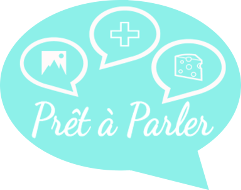Bonne fête nationale de la Suisse!
I have been living in beautiful Versoix, Switzerland, for almost six years now and, just like you, I am an expat. As some of you already know, I am originally from Saint-Hyacinthe, Quebec, Canada.
Did you know that French is one of the two official languages in Canada? In Quebec, we speak québécois, a very different French from the one spoken in Europe. Why is that so? Well, let’s have a look at Quebec’s history. La Nouvelle-France was the area colonized by France in North America during a period beginning with the exploration of the Gulf of Saint Lawrence by Jacques Cartier in 1534 and ending with the cession of New France to Great Britain in 1763.
For the centuries to come under British rule, the original French pronunciation would be strongly influenced and altered by and because of the English speakers living within and all around the Province of Quebec. Hearing English being spoken on a daily basis might also explain why French Canadians learn that language much more easily than their French cousins!
My mother tongue is québécois and this is what I speak when I spend time in my native town. However, as my father is French, my mother Belgian, and I live in Geneva, Switzerland, I have learned to speak and teach the international French pronunciation. I also had to attend many diction classes (French, English, Italian, and German) as part of my training to become an opera singer. So, I’ve got a few tricks up my sleeves which I’d be happy to share with you!
Do you fear to be ridiculed or misunderstood when trying to speak French? That is absolutely normal and part of the challenge of learning a new language.
Here are a few diction rules which can be easily integrated in your day to day conversation and will greatly improve your French pronunciation.
Here are 6 Quick Tips to Improve Your French Pronunciation!

1. Silence Is Golden
Contrary to popular belief, not every single letter is pronounced in French. As a general rule, final consonants are silent.
- le sauvignon blanc (Yes, the grape variety!) You DON’T pronounce the final ”c”! Really? Vraiment!
- le pont du Mont-blanc (Mont Blanc bridge) Same principle!
- le plat du jour (the meal of the day) A final ”r” is always pronounced.
- l’essence sans plomb (unleaded petrol/gas)
Click below to listen to the pronunciation of these examples.
2. If There Is A Final ”e”, Pronounce It Gladly!
A final ”e” generally indicates that the word is feminine. Make sure to clearly pronounce the preceding consonant.
- une salade verte (a green salad) Pronounce the final ”n”, ”d”, and ”t”.
- une petite fille (a young girl) Here, the double ”l” is pronounced like ”y” in ”you”.
- une belle femme (a beautiful woman) Pronounce the final ”n”, ”l”, and ”m”. Note that here, the double ”l” is pronounced like a regular ”l”.
3. ”s” or ”z”, That Is The Question
Double ”s”, ”ç”, and ”t” combined with ”i” are generally pronounced like a regular ”s”. Same thing for words starting with ”s”.
- le poisson (the fish)
- Je parle français. (I speak French.)
- une information (an information)
- le savoir (knowledge)
When between two vowels, ”s” is pronounced ”z”.
- le poison (the poison)
- la maison (the house)
4. Watch this Youtube video
5. ENT VS ANT
3rd person plural verbs very often end with ”ent”, which is NEVER pronounced.
- Ils boivent une bouteille de champagne. (They drink a bottle of champagne.)
- Elles parlaient beaucoup de vin rouge. (They (f.) talked a lot about red wine.)
- Ils aimeraient payer maintenant. (They would like to pay now.)
Gerunds are verbs ending with ”ant”, which is pronounced.
- La dame parlant avec le serveur est ma soeur. (The lady speaking/who speaks with the waiter is my sister.)
- Ne parle pas en mangeant! (Don’t talk while eating!)
6. Syllabe, syllabe, syllabe!
This is a tip I keep telling every single one of my students! No matter how long and scary the word seems, pronounce e-ve-ry syl-la-ble! Slowly, but surely.
Ready to put into practice everything we learned so far? C’est parti!
- C’est vraisemblablement plus facile que je pensais! (It is apparently much easier than I thought!) Remember that it is only with verbs that ”ent” isn’t pronounced. When ”ent” is part of a noun, an adjective or, as here, an adverb, you do pronounce it!
- Évidemment, il faut pratiquer régulièrement. (Of course, one must practice regularly.)
- J’adore la prononciation française! (You know that one, right?!)
** My Extra Tip **
How to produce the sound ”U” in French?
Listen to the video I made for you which gives you some helpful tips on how to finally be able to correctly pronounce words like tu, utiliser, and j’ai bu in French!
I hope you now have more tools to improve your French pronunciation and feel more empowered to integrate this beautiful language in your everyday life!

Isabelle
As a native Québécoise, born to a Franco-Belgian family, now living in Nyon with her two children, Isabelle is no stranger to the expat reality! Trained as a professional opera singer, her passion for arts and languages led her to become an ambassador of the French language & francophone culture, i.e. a French Teacher!
She founded Prêt à Parler in January 2015. Since then she's been hard at work helping native and non-native English-speaking expats make French part of their everyday life! Prêt à Parler's mission is based on what Isabelle does best: helping busy professionals and parents improve their French language skills by providing a high quality, eco-friendly, fun, no-nonsense approach to learning French online!






0 comments